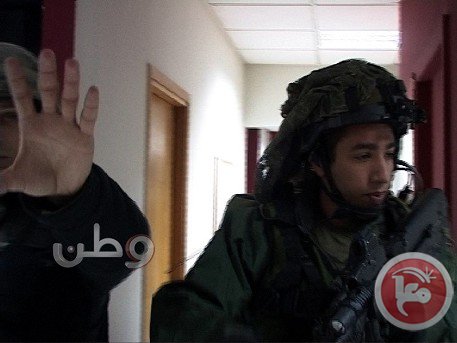-
Settler violence rages in Nablus area
by Jonas Weber 29 February 2012 | International Solidarity Movement, West Bank Yesterday, violence erupted close to Joseph’s Tomb when settlers gathered near the site. Youths from Balata refuge camp came out to chase the settlers off but where kept at a distance by the soldiers that accompanied the illegal settlers as usual. This is […]
-
Israel raids Ramallah TV stations
29 February 2012 | Ma’an News Israeli forces raided two Palestinian television networks early Wednesday in Ramallah and briefly detained four employees, journalists said.Soldiers confiscated computers used by editors and reporters in Watan TV’s newsroom and general offices as well as administrative and financial files, the network said. Troops also raided Al-Quds Educational TV in […]
-
We Are With Hana Shalabi and Al Aqsa: Demonstration in the No Go Zone in Beit Hanoun
by Nathan Stuckey 29 February 2012 | International Solidarity Movement, Gaza Israeli riot police have entered the Al Aqsa Mosque Compound, Palestinians have struggling to protect it for days. After 66 days Khader Adnan has ended his hunger strike, hopefully, soon, he will be home with his family. Even before his hunger strike ended the […]
Action Alert An Nabi Saleh Apartheid Wall Arrests BDS Bethlehem Bil'in Cast Lead Demonstration Denial of Entry Ethnic Cleansing Farmers Gaza Global Actions Hebron House Demolition International law Israeli Army Jerusalem Live Ammunition Nablus Ni'lin Prisoner Ramallah Rubber-coated steel bullets Settlement Settlers Settler violence Tear-Gas Canister Video



